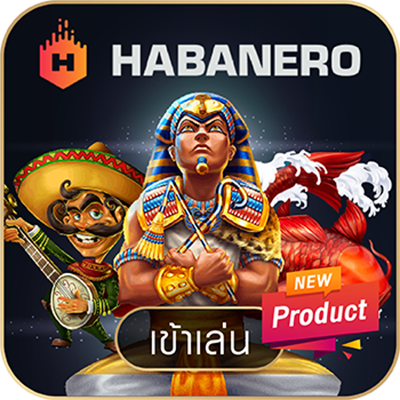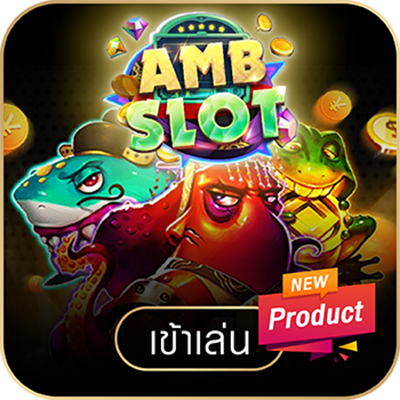
skyline369 เป็นเว็บการพนัน เว็บโดยตรงไม่ผ่านเอเย่นต์ที่สามารถทำกำไรให้กับผู้เล่นได้ พร้อมด้วยเว็บมีโปรโมชั่นต่างๆ เช่น คืนเงินที่แตกง่ายไป, โปรฝาก 10 รับ 100, โปรฝาก 15 และรับ 100, โปรฝาก 20 และ รับ 100 โปรโมชั่นฝาก 25 และรับ 100 และโปรโมชั่นเงินฝาก เกมเสือมังกรออนไลน์ เกมป๊อกเด้งออนไลน์ เกมเสือมังกร หรือเกมกราฟิกออนไลน์
skyline369 เข้าสู่ระบบ เป็นเกมสล็อตรูปแบบใหม่ คุณสมบัติพิเศษ เพิ่มความน่าสนใจและกลายเป็นจุดสนใจทำให้น่าสนใจยิ่งขึ้น ให้กับสมาชิกมากขึ้นกว่าเดิม เพื่อให้ทุกคนมีความสุข ไม่มีความเหงา ในขณะที่เล่นเกมสล็อตของเราจากคาสิโนยอดนิยม ทุกคนรู้จักเราและอยากเล่นมาก







ระบบ skyline369ทางเข้า ออกแบบมาอย่างดี และเปิดให้บริการตลอด 24 ชั่วโมง เพื่อให้ผู้เล่นสามารถร่วมสนุกได้ไม่มีหยุดและไม่เบื่อกับเกมที่เราคัดสรรและอัปเดตอยู่ตลอดเวลาไม่ว่าจะเป็นเกมใหม่ ๆ ก็ตามเรายังคงให้ผู้เล่นมาจาก เว็บสล็อตออนไลน์ skyline369 ของเราและร่วมสนุกได้อย่างเต็มที่ วันไหนๆ ก็สามารถร่วมสนุกได้ผ่านช่องทางเข้าเว็บสล็อตออนไลน์ของเรา
ร่วมสนุกกับเราบนเว็บ skyline369.com และสมัครหรือฝาก/ถอนเงิน ผู้เล่น สามารถมาร่วมสนุกกับเราล่ารางวัลเพื่อให้เราได้สนุกและเพลิดเพลินไปกับเกมมากมายที่เราคัดสรรมาเป็นอย่างดี นอกจากนี้ ระบบที่เราออกแบบมาอย่างประสบความสำเร็จยังมีโปรโมชั่นในเกมมากมายที่จะนำเสนอให้กับ ผู้เล่นของเราที่จะร่วมสนุกออนไลน์เป็นหลัก
คุณไม่จำเป็นต้องใช้วิธีการใด ๆ เมื่อเล่นบนเว็บของเราโดยตรงมั่นใจได้เลยว่าเชื่อถือได้เพราะระบบบริการทำให้ทุกคนสามารถทำธุรกรรมทางการเงินได้ ด้วยระบบรักษาความปลอดภัย เป็นระบบอัตโนมัติ รายชื่อทุกคนได้ทันที ไม่ต้องรอนาน สนุกกับทุกเกม


เล่นและรับข้อเสนอสุดพิเศษจากเกมมากกว่า 300 เกม รวมถึง SWEET BONANZA, WILD WEST GOLD, FRUIT PARTY 2, SWEET BONANZA XMAS, GATES OF OLYMPUS, BOUNTY GOLD และเกมอื่น ๆ อีกมากมาย สนุกสนานและเพลิดเพลินด้วยการนำเสนอเกมเดิมพันสล็อตที่ไม่เหมือนใคร กราฟิกที่สวยงามพร้อมเอฟเฟกต์เต็มรูปแบบโดยใช้ HTML พร้อมให้ทุกท่านมาสัมผัสประสบการณ์เกมหลากหลายตลอด 24 ชม.ที่ https skyline369 com member
เล่นง่าย ด้วยอุปกรณ์เล่นเกมทุกเครื่อง มือถือและคอมพิวเตอร์ เล่นและรับเงินได้ทุกที่ทุกเวลาบนเว็บ skyline369 นำเข้าโดยตรงจากประเทศโดยรวบรวมเกมทำเงินมากมาย รูปแบบ 3 มิติ กราฟิคครบครัน เล่นสนุก เล่นง่าย ทั้ง REYIBANG, ZHAO CAI JIN BAO, FAFAFA , KOI และเกมอื่นๆ อีกมากมาย เล่นง่ายสนุกสนุก การเล่นกีฬาทำเงินได้มากมาย
skyline369ทางเข้า โบนัสสูงกว่าที่เคยพร้อมการจ่ายโบนัสที่สูงขึ้น สนุกได้ไม่จำกัดกับทุกเกม รวมไปถึงระบบการบริการที่สะดวกสบายสำหรับผู้เล่น มีเว็บ สล็อตแตกง่าย มากมายที่มักมาพร้อมกับเทคนิคและกลยุทธ์การเดิมพันซึ่งเป็นกลยุทธ์ในการสร้างรายได้
มีเว็บ สล็อตแตกง่ายมากมาย เกมไม่จำกัด โดย skyline369 เว็บสล็อตที่แตกง่ายที่สุดในปี 2024 เหมาะสำหรับผู้เล่นในโลกที่ต้องการความเร็ว และสามารถหาเงินได้อย่างรวดเร็วและมีความสุข เว็บสล็อตมักจะแตกง่าย เกมนั้นง่ายกว่า มีเว็บสล็อตมากมายที่มีระบบฝากหรือถอนเงินที่คุณสามารถทำได้บนโทรศัพท์มือถือของคุณ








เว็บที่มีระบบพัฒนาอย่างดีให้ผู้เล่นร่วมสนุกกับเราได้ง่ายและรวดเร็วมีขั้นตอนการร่วมสนุกที่ง่ายมากผู้เล่นเพียงเข้ามาที่เว็บหรือค้นหาผู้เล่นที่จะสามารถเชื่อมต่อได้ และเพลิดเพลินกับเว็บของเราอย่างปลอดภัยและเต็มที่ ภายในเว็บ เรายังมีโปรแกรมมากมายที่เราได้ออกแบบและคัดสรรมาเพื่อนักเล่นเกมออนไลน์ ทำให้การออกแบบเกมมีกราฟิกที่สวยงามและรูปแบบการเล่นที่ดีและมีเกมประเภทต่างๆให้ผู้เล่นได้เพลิดเพลินอย่างเต็มที่
นอกจากนี้เกมยังมีโบนัสที่ดีมีการจำลองและเกมมากมายให้ผู้เล่นหยุดเล่นโดยไม่ต้องค้นหา เบื่ออยากร่วมสนุกผ่านเว็บของเราเพียงค้นหาก็สามารถร่วมสนุกได้ด้วยการเป็นสมาชิกของเราง่ายๆผ่านช่องทางนี้ แจ็คพอตนั้นแตกได้ง่าย มันเติบโตอย่างเต็มที่ด้วยกราฟิกที่มาพร้อมกับคุณสมบัติพิเศษเช่นเกมหมุนฟรีที่ปล่อยออกมาไม่หยุดหย่อน หาเงินได้ง่ายกว่าที่เคยระบบรองรับโทรศัพท์มือถือจึงสามารถเล่นได้ตลอดเวลา skyline369
เล่นง่ายได้กำไรทุกครั้งที่มาใช้บริการ สล็อต ฝากถอน ไม่มี ขั้น ต่ํา วอ เลท เว็บตรงไม่ผ่าน เอ เยน และรับประกันความคุ้มค่าทุกการเดิมพัน เว็บไซต์ของเรามีวิธีเล่นที่ง่ายดายและไม่มีกฎเกณฑ์ที่ยากในการทำกำไร และเว็บไซต์ของเราได้คัดสรรเกมสล็อตใหม่ โดยจะให้บริการเกมมากถึง 500 เกม และที่สำคัญคือไม่จำเป็นต้องให้ทุกคนใช้เวลาเล่นนาน ๆ ผลกำไรก็คุ้มค่าที่จะมอบให้กับทุกคน นอกจากนี้ชาวต่างชาติทุกคนสามารถลงทุนกับเราได้อย่างง่ายดาย คุ้มแน่นอนถ้ามาลงทุนกับเรา
เล่นง่ายได้กำไรทุกครั้งที่มาใช้บริการ สล็อต ฝากถอน ไม่มี ขั้น ต่ํา วอ เลท เว็บตรงไม่ผ่าน เอ เยน และรับประกันความคุ้มค่าทุกการเดิมพัน เว็บไซต์ของเรามีวิธีเล่นที่ง่ายดายและไม่มีกฎเกณฑ์ที่ยากในการทำกำไร และเว็บไซต์ของเราได้คัดสรรเกมสล็อตใหม่ โดยจะให้บริการเกมมากถึง 500 เกม และที่สำคัญคือไม่จำเป็นต้องให้ทุกคนใช้เวลาเล่นนาน ๆ ผลกำไรก็คุ้มค่าที่จะมอบให้กับทุกคน นอกจากนี้ชาวต่างชาติทุกคนสามารถลงทุนกับเราได้อย่างง่ายดาย คุ้มแน่นอนถ้ามาลงทุนกับเรา